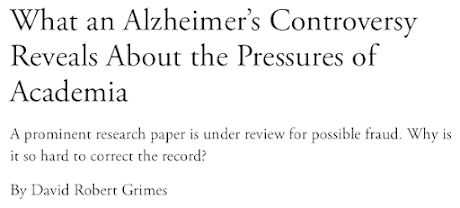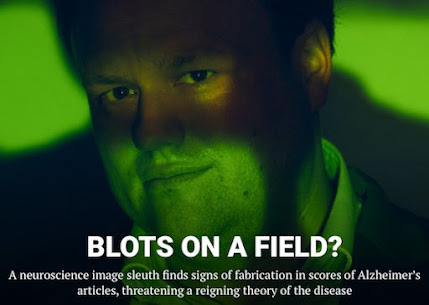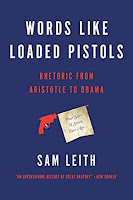When future historians come to chronicle the early 21st century, one curious paradox may epitomize the era in which we now live. The advent of the internet in the final decade of the 20th century promised the entire repository of the world’s information at our very fingertips, and a new dawn of mutual understanding that would transcend the confines of geography or politics. Fewer sages foresaw, however, that the same technology would enable the propagation of falsehood at staggering velocity to huge, receptive audiences. Fewer still predicted this would leave us more polarized and divided than ever before. The upheaval and division that define our current epoch will no doubt intrigue those future historians. Navigating our way now, without the benefit of hindsight, is an abiding challenge. With such a confluence of contradictory aspects, it is small wonder we’re frequently left feeling overwhelmed…
Grimes, David Robert. Good Thinking (p. xi). The Experiment. Kindle Edition
This book makes an unconventional claim about democracy. In almost every major work on the subject, democracy is reduced to a body of institutions and practices. We are told, time and again, that the touchstone of any democratic society is the universal right to vote and a government that enshrines the law. This description isn’t wrong so much as narrow; it identifies the core features of democracy, but it doesn’t capture the constitutive condition of this type of society. Moreover, it’s better to think of democracy less as a government type and more as an open communicative culture. Democracies can be liberal or illiberal, populist or consensus based, but those are potential outcomes that emerge from this open culture. And the direction any democracy takes largely depends on its tools of communication and the passions they promote. This is more than an academic distinction. To see democracy as a culture of free expression is to foreground its susceptibility to endless evolution, even danger.
We call this the paradox of democracy: a free and open communication environment that, because of its openness, invites exploitation and subversion from within. This tension sits at the core of every democracy, and it can’t be resolved or circumnavigated. To put it another way, the essential democratic freedom—the freedom of expression—is both ingrained in and potentially harmful to democracy…
Gershberg, Zac; Illing, Sean (2022-06-15T23:58:59.000). The Paradox of Democracy. University of Chicago Press. Kindle Edition.
For scientists, publication in Nature is a career high-water mark. To make its pages, work must be deemed exceptionally important, with potentially transformative impact on scientific understanding. In 2006, a study of Alzheimer’s disease by the lead author Sylvain Lesné met those criteria: It suggested a new culprit for the illness, a molecule called Aβ*56, which seemingly caused dementia symptoms in rats. The study has since accrued more than 2,300 citations in the scientific literature and inspired years of follow-up work. But an investigation of the original paper and many others by Lesné, described last week in Science, identified numerous red flags indicating the possibility of data fraud…Science is an enterprise built on trust, and in general, scientists do not attribute to malice what could be equally well explained by ineptitude. Peer review is far from perfect, often failing utterly to do its job, and journals have a well-established bias toward publishing positive results. Errors in published works are legion, from errant inferences to inappropriate statistics. Voicing concerns over suspect results, however, is fraught with peril. Careers in academia are precarious, research communities can be small, and open criticism may garner enmity from colleagues who evaluate submitted papers and grant proposals. Scientists may even cite research they do not believe or trust, for the sake of appeasing publishers, funders, and potential reviewers...Science may be self-correcting, but only in the long term...
In August 2021, Matthew Schrag, a neuroscientist and physician at Vanderbilt University, got a call that would plunge him into a maelstrom of possible scientific misconduct. A colleague wanted to connect him with an attorney investigating an experimental drug for Alzheimer’s disease called Simufilam. The drug’s developer, Cassava Sciences, claimed it improved cognition, partly by repairing a protein that can block sticky brain deposits of the protein amyloid beta (Aβ), a hallmark of Alzheimer’s. The attorney’s clients—two prominent neuroscientists who are also short sellers who profit if the company’s stock falls—believed some research related to Simufilam may have been “fraudulent,” according to a petition later filed on their behalf with the U.S. Food and Drug Administration (FDA).
Schrag, 37, a softspoken, nonchalantly rumpled junior professor, had already gained some notoriety by publicly criticizing the controversial FDA approval of the anti-Aβ drug Aduhelm. His own research also contradicted some of Cassava’s claims. He feared volunteers in ongoing Simufilam trials faced risks of side effects with no chance of benefit.So he applied his technical and medical knowledge to interrogate published images about the drug and its underlying science—for which the attorney paid him $18,000. He identified apparently altered or duplicated images in dozens of journal articles. The attorney reported many of the discoveries in the FDA petition, and Schrag sent all of them to the National Institutes of Health (NIH), which had invested tens of millions of dollars in the work.But Schrag’s sleuthing drew him into a different episode of possible misconduct, leading to findings that threaten one of the most cited Alzheimer’s studies of this century and numerous related experiments...
“At the very heart of democracy is a contradiction that cannot be resolved, one that has affected free societies from ancient Greece to contemporary America,” write Zac Gershberg and Sean Illing in their new book, “The Paradox of Democracy.” In order to live up to its name, democracy must be open to free communication and expression; yet that very feature opens democracies up to the forces of chaos, fragmentation and demagoguery that undermine them. Historically, this paradox becomes particularly profound during transitions between different communication technologies. “We see this time and again,” Gershberg and Illing write, “media continually evolve faster than politics, resulting in recurring patterns of democratic instability.”
OK, y'all. Permit me an apology.
I just finished your new book. I saw/heard/read the interview podcasts & transcripts, then downloaded the (very generous) Amazon Preview, then downloaded the full Kindle edition. It's pre-empted everything else since I got it.
Have to admit, I was a bit put off by the Kindle ed price. This old coot SS retiree reads 8-10 ebooks a month, so my annual book budget is not trivial.
But, Chapter 8 alone was worth the entire price.
This is one important-assed read. Multiple awards-worthy.
You are two impressive dudes.
96 days to Nov 8th. Shit.
Society itself is a fragile fabric, easily torn apart by misconception or fearmongering. We share a glorious world, and our fates are intertwined with bonds that cannot be severed. If this world burns, so do we all. We cannot hope to improve things if we labor under delusion and unthinking tribalism. Those who would subvert our thinking can make us deny reality, creating a vacuum that tyrants and charlatans fill with hatred and falsehood. Voltaire’s warning that those who can make us believe absurdities can drive us to atrocity remains true, but the corollary to this dictum is equally important: Those who can erode human trust and cast doubt on shared truths can make us malleable to all evils. Whether this is propaganda that aims to sow discord, or misinformation propagated by those ideologically blind to reality, the net effect is societal division and distrust. Divided, we are weak and ineffectual, drifting toward disaster, incapable of collaborating on the truly global problems we face.
To allow facts, evidence, and reason to be disavowed is to stand on the precipice of tragedy. Berlin is home to many harrowing memorials marking the barbarity of the Nazi era. To me, the most unsettling one is the most understated. In beautiful Bebelplatz, there is a transparent floor plate in the center of the square. It commemorates the first Nazi book burnings, on May 10, 1933, where works deemed contrary to Nazi teachings were put to the flame. Today, this plate serves as a reminder of that madness; to glance downward is to be greeted by the haunting sight of row upon row of barren shelves, devoid of a single book. Inscribed close by are the words of poet Heinrich Heine: Das war ein Vorspiel nur, dort wo man Bücher verbrennt, verbrennt man am Ende auch Menschen (“That was only a prelude; where they burn books, they will ultimately burn people”).
That monument in Berlin is a potent reminder of what dark consequences can arise when truth is sidelined and destroyed. Heine’s words were written more than a century before Hitler seized power. He couldn’t have envisaged the brutality of the Third Reich, nor how percipient his sentiment would prove. But he alluded to a fundamental darkness in those who would seek to erase truth rather than embrace it. There will always be those who would render us pliant with confusion and lies, but we are more resilient than we know. Even in this era where falsehoods perpetuate faster and further than ever before, our capacity for analytical thought is the blade that cleaves the reliable from the ridiculous. This can seem overwhelming, making a retreat into apathy tempting. But apathy is the enemy; we cannot challenge falsehood if we are disengaged, nor strive toward a better world if stricken by inertia. Only our willingness to question–to ask “why?” and “why not?”–shields against those who would mislead or manipulate us, a compass to steer us toward viable solutions to the challenges we face together.
These challenges are truly daunting, from climate change to antibiotic resistance to global pandemics and geopolitical instability. To meet them and endure, we need to think like scientists, reflecting before we react, guided by evidence over emotion, and always self-correcting. Striving toward a better future for all of us requires bravery and compassion as much as intellect. For, although we might start as mere irrational apes, we are endowed with the ability to be so much more. We must be unafraid to let go of poor ideas or embrace new ones. We must be forgiving not only of the errors of others, but also of our own. Ultimately, whether we prosper or perish comes down to whether we choose to learn from our mistakes or succumb to them. [Good Thinking, pp. 362-364]
...As we bring this Handbook to fruition, the world at large appears to be moving in some disconcerting anti-deliberative and anti-democratic directions. Post-truth politics is the antithesis of deliberative democracy. Resurgent authoritarian and populist leaders in many countries have little interest in deliberation—except to suppress it. Even where deliberation is not repressed, we too often see levels of political polarization that signal inabilities to listen to the other side and reflect upon what they may have to say.__________
We hope that these sorts of trends can and will be reversed, and that the ideas and practices of deliberative democracy can play a key role in their reversal. In the meantime, however, these trends feed the cynicism of those who believe that deliberative democracy is a pipe dream. A long tradition in political science deploys empirical evidence and analysis to show that ordinary people are not up to the task of competent participation in democracy...
(2018-08-22T23:58:59.000). The Oxford Handbook of Deliberative Democracy (Oxford Handbooks). OUP Oxford. Kindle Edition.










No comments:
Post a Comment